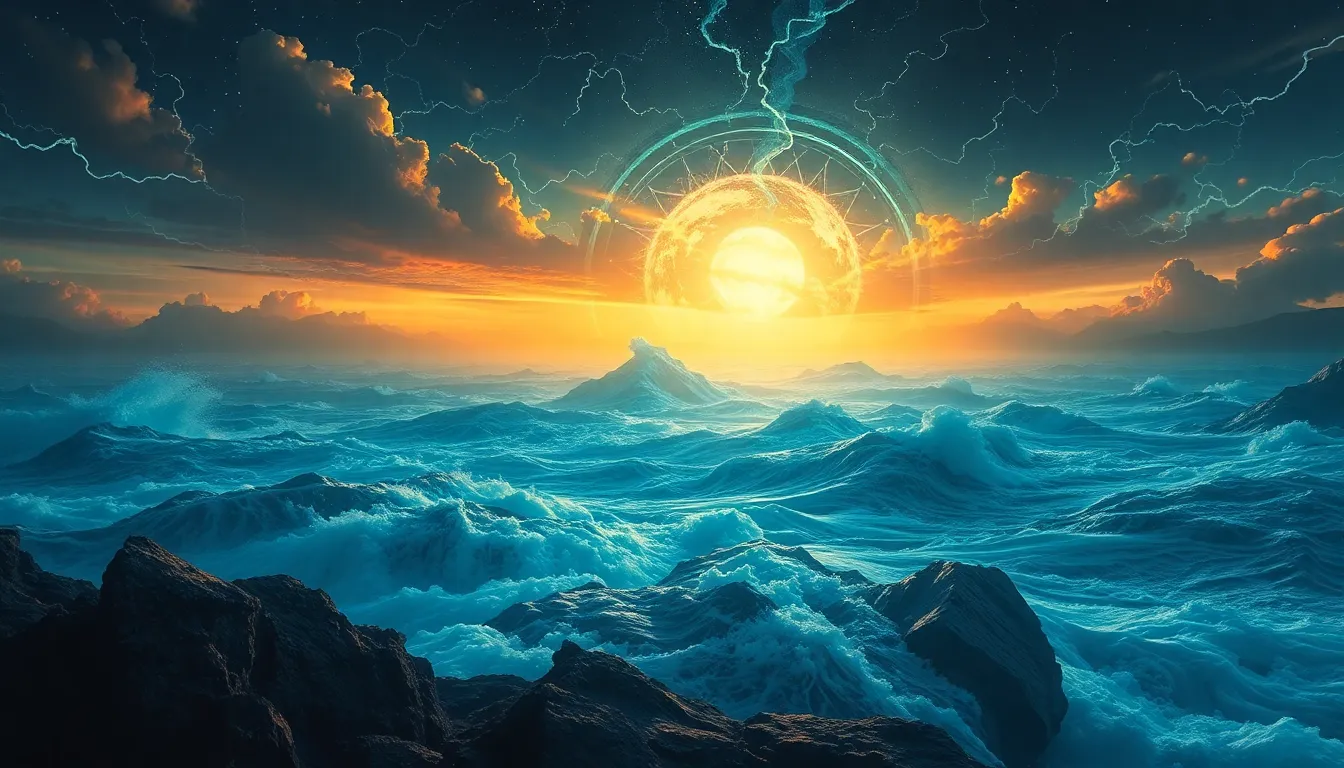The Role of Ancient Deities in Shaping Human Existence
Introduction
Ancient deities are often defined as supernatural beings that were worshipped in various cultures throughout history. They played crucial roles in shaping the beliefs, practices, and values of civilizations, influencing everything from agriculture to governance. This article explores the profound impact of these deities on human existence, examining their historical context, mythology, and legacy in contemporary society.
Historical Context of Ancient Deities
Ancient civilizations across the globe developed intricate pantheons of deities, each representing different aspects of life, nature, and human experience. Notable examples include:
- Greek Pantheon: Zeus, Hera, Poseidon, and others represented various human traits and natural phenomena.
- Roman Pantheon: Adapted many Greek gods and introduced deities like Janus and Vesta.
- Egyptian Pantheon: Gods like Ra, Osiris, and Isis played significant roles in mythology and daily life.
- Mesopotamian Pantheon: Deities such as Enlil and Ishtar influenced the agricultural and social structures of the region.
The evolution of deity worship often reflected societal values, illustrating how cultures understood the world around them. As societies changed, so did their gods, adapting to new realities and moral frameworks.
Mythology as a Reflection of Human Experience
Myths serve as narratives that encapsulate human emotions, struggles, and aspirations. They provide insights into the human condition and often convey moral or philosophical teachings. For instance:
- The Epic of Gilgamesh: Explores themes of friendship, mortality, and the quest for immortality.
- The Greek Myth of Prometheus: Illustrates the consequences of defying the gods and the quest for knowledge.
- The Egyptian Myth of Osiris: Represents death, resurrection, and the cycle of life.
These stories not only entertain but also guide individuals in navigating their own lives and moral dilemmas.
Deities and the Natural World
Ancient deities often personified natural elements, symbolizing the connection between humanity and the environment. For example:
- Sun Gods: Ra (Egyptian) and Apollo (Greek) represented the life-giving properties of the sun.
- Rain Gods: Tlaloc (Aztec) and Indra (Hindu) were crucial for agricultural societies dependent on seasonal rains.
- Earth Goddesses: Gaia (Greek) and Pachamama (Andean) embodied fertility and the nurturing aspects of the earth.
The worship of these deities often coincided with agricultural practices and seasonal festivals, reinforcing the vital relationship between humans and nature.
Deities in Governance and Law
Divine authority has historically influenced political structures and legal systems. Rulers frequently claimed divine right or were considered incarnations of deities. For instance:
- Pharaohs of Egypt: Were viewed as gods on earth, embodying divine authority and governance.
- Roman Emperors: Often deified after death, reinforcing their power and legacy.
- Mesopotamian Kings: Were seen as representatives of the gods, implementing their will through laws and governance.
This intertwining of the divine with earthly authority helped legitimize rule and maintain social order.
Cultural Practices and Rituals
Rituals, offerings, and temples were central to ancient worship practices, serving as expressions of devotion and community identity. Key aspects include:
- Rituals: Involved ceremonies to honor deities, often tied to agricultural cycles or life events.
- Offerings: Included food, livestock, and crafts, intended to appease or gain favor from the gods.
- Temples: Served as sacred spaces for worship, community gatherings, and as symbols of divine presence.
These practices fostered community cohesion and a shared sense of identity, reinforcing the importance of deities in everyday life.
Deities and Human Morality
Ancient deities played a crucial role in shaping concepts of right and wrong. The belief in divine punishment and reward influenced ethical behavior among their followers. For example:
- Hinduism: The concept of Dharma emphasizes moral duty, guided by divine principles.
- Judaism: The Ten Commandments, given by God, serve as foundational ethical guidelines.
- Greek Mythology: Stories like that of Pandora illustrate the consequences of human actions and the importance of virtue.
These divine influences helped cultivate a moral framework within societies, promoting ethical behavior and social harmony.
Art and Literature Inspired by Deities
Ancient deities have significantly impacted artistic expression, inspiring literature, sculpture, and painting. Notable works include:
- The Iliad and The Odyssey: Homer’s epics explore the interactions between gods and humans, highlighting their influence on fate.
- Michelangelo’s Creation of Adam: A renowned painting that captures the divine touch between God and humanity.
- Greek Tragedies: Often centered around themes of fate and the will of the gods, reflecting the complexities of human experience.
The portrayal of deities in art and literature continues to resonate, providing a lens through which we examine the interplay of the divine and the human.
The Legacy of Ancient Deities in Modern Society
Despite the passage of time, ancient deities continue to influence contemporary culture, religion, and psychology. Key aspects of this legacy include:
- Modern Spirituality: A resurgence of interest in polytheism and ancient mythologies among those seeking alternative spiritual paths.
- Psychological Archetypes: Jungian psychology draws on the archetypal significance of gods and goddesses in understanding human behavior.
- Cultural References: Many modern stories, films, and artworks draw upon ancient myths and deities, showcasing their enduring relevance.
These influences reflect how ancient beliefs continue to shape our understanding of human nature and existence.
Conclusion
In summary, ancient deities played multifaceted roles in shaping human existence, influencing societal values, moral frameworks, and cultural practices. Their narratives, personifications of nature, and divine authority have left an indelible mark on history and continue to resonate in modern society. By exploring these ancient beliefs, we gain insight into the complexities of human nature and the enduring relevance of spirituality in our lives today.



